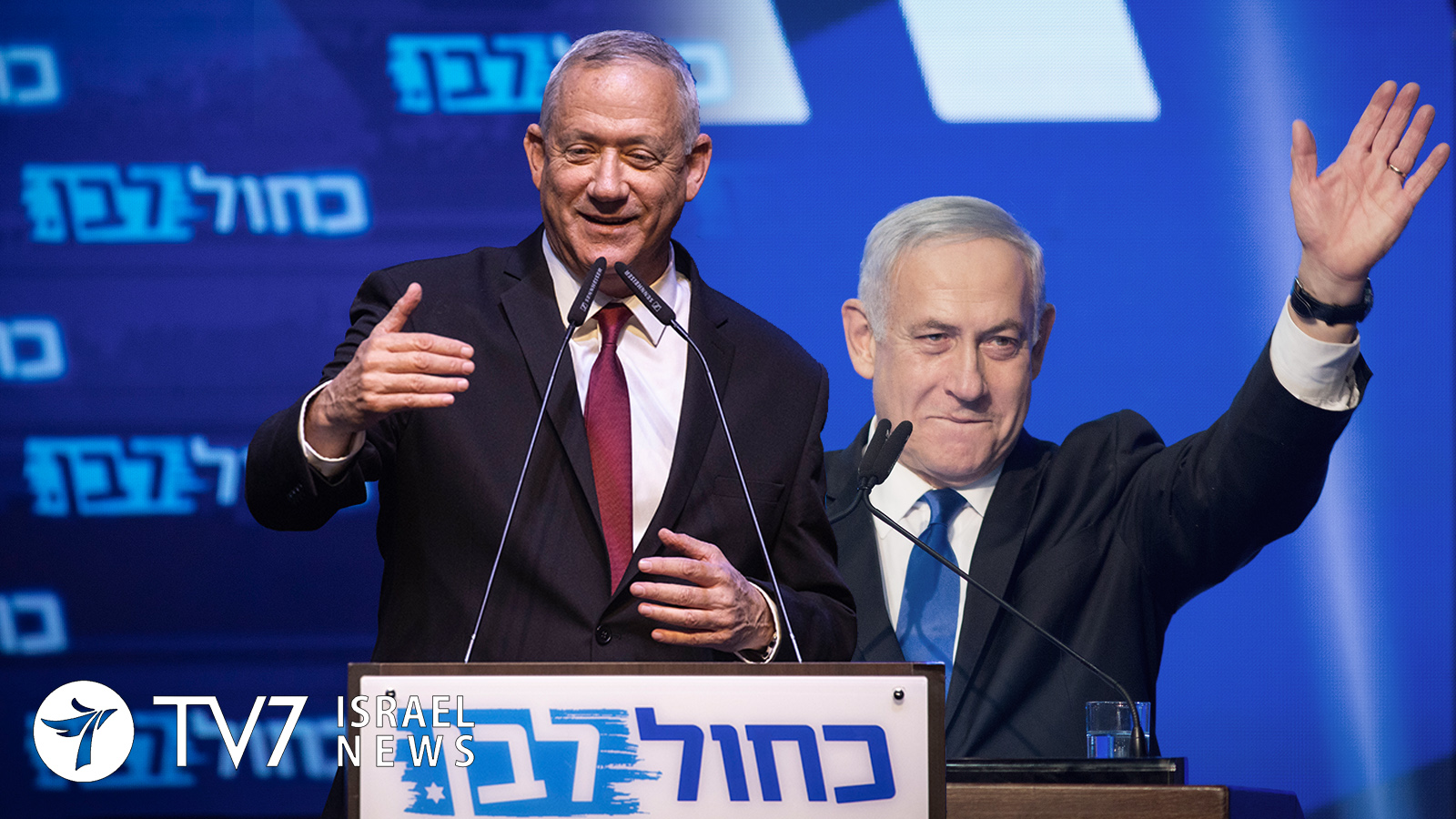Israel’s national parliamentary elections ended inconclusively, after the exit polls and the Central Elections Committee’s interim ballot count of ballots indicated that Prime Minister Benjamin Netanyahu of the ruling Likud party failed to muster a 61-seat majority for the first time in a decade; nor did his chief rival, Blue and White Chairman Benny Gantz.
Distribution of the Knesset’s 120 seats may shift several times before completion of the final and official count. One fact emerged as certain, however; the only two scenarios that currently appear viable are either a unity government that revolves around Blue and White and the Likud, or yet another repeat election.
Following the neck-and-neck exit polls, Prime Minister Netanyahu declared in a speech last night that at the current juncture in time, “; “Israel needs a strong government, stable government , Zionist government.” He further stressed that the next government must be “committed to Israel as a national state for the Jewish people,”stressing that “There can’t be a government that is being supported by Arab parties which are anti-Zionist.” The statement was in reference to the Arab Joint List, which rejects Israel’s existence as a Jewish and democratic state, and that praises Palestinian terrorists who murder the country’s soldiers and civilians. The long-time Israeli leader thus announced that he would begin negotiations to form a such a government to prevent the establishment of a dangerous anti-Zionist government.
Blue and White Chairman Benny Gantz, whose party appears to have a slight edge over Netanyahu’s Likud, pledged to act to form a broad unity government that would reflect the public’s will, and underscored his intention to speak with all of the parties vying for power. During his post-election speech to party activists in Tel Aviv last night, Gantz said that “as it seems, we fulfilled our mission, and just as important – we fulfilled it our way,” adding that even though the actual results have yet to be realized, “One can say that according to the results as they appear to be, Netanyahu did not succeed in his mission.” The political newcomer, who served as the 20th Chief of General Staff of the Israel Defense Forces under Netanyahu’s premiership between 2011 and 2015, refrained from addressing his pre-election campaign promises to not join a government with Netanyahu and form an exclusively-secular government.
Similar to the outcome of the previous April 9th round of national elections, the real victor and presumed kingmaker is former Defense Minister Avigdor Lieberman, who heads the Yisrael Beitenu party. After saying that “Both financially and in terms of security we are indeed in a state of crisis,” Liberman told his supporters that “therefore, the country requires a broad government.” In accordance with his pre-election campaign pledge, Liberman concluded, “We have only one option – a national, liberal, broad government comprising Israel Beitenu, Likud and Blue and White.”
It is important to mention that despite Netanyahu’s assertion that his rival is part of the left-wing bloc, the majority of Gantz’ Blue and White party are former members of the rightwing Likud faction, and vocally maintain their conservative policies.
Palestinian Prime Minister Mohammad Shtayyeh reacted to the Israeli elections by declaring that the two major contenders are basically the same. While speaking at an International Conference of Entrepreneurship near the West Bank city of Bethlehem, Shtayyeh commented, “we know that the competition is between Benny and Bib -i but there is no major difference between them. It is like the difference between Pepsi cola and Coca Cola, because no one has an agenda to end the occupation.”
